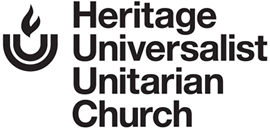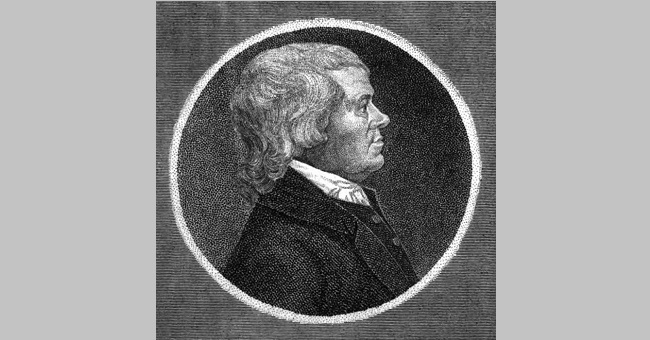by Mike Roberts, Church Historian
As we hunker down and self-quarantine, some will still be looking forward to the celebration this fall of the 250th anniversary of Universalism in America. Therefore, let us delve into the life of the man responsible for that initial Universalist church service in America, John Murray.
John Murray was of English heritage. He was born on December 10, 1742, 40 miles southwest of London, and was reared in a seemingly well-to-do family as the oldest of 10 children. He was raised strictly in the Anglican faith by a stern father who never believed in sparing the rod. During Murray’s childhood, the family relocated to Ireland near Cork. While there, John first heard the preachings of Methodism and was attracted to that belief although that denomination was still considered a part of the dominant Anglican Church. As a teenager in Ireland, and despite his youth, Murray saw himself as one of the “elected,” those who were chosen by God to preach and interpret the scriptures. His father saw otherwise and forced John to give up any thought of college and enter into a business career.
John found that he could earn a living and be successful in business but he also found that he hated the profession. He longed to pursue the ministry but his father blocked that path by again denying him pursuit of a college education
Family matters intervened when his father became ill and died. As the oldest child, he was now expected to take hold of the family. He was less than successful as he adopted his father’s stern parenting which was met with formidable resistance by his siblings. After a few months of frustration, he packed his meager belongings, said goodbye to the family and moved to London.
Murray continued his pursuit of a career in preaching but was stymied by his lack of education. Entrance into the field was tightly regulated by the church and formal training in the scriptures was a requirement. Nonetheless, he continued to impress listeners with his oratory and knowledge of the scriptures when he spoke at informal religious gatherings which were quite common at that time. Unfortunately, he earned little money in these activities and had to pursue occasional work in business to stay out of Newgate debtors prison.
While in London, Murray became aware of another religious speaker by the name of James Relly. Relly was espousing the belief that all souls will eventually receive redemption from God and that there was no such thing as Hell. At first, Murray flatly rejected this concept but as he examined scripture and read Relly’s works, he came to see some merit in the argument. As he continued his speaking engagements, the concept of universal salvation began to creep into his belief system. This brought him bitter castigation from many around him and from some in his audiences.
During this interlude, Murray married. Life seemed to be coming together for him at least as far as his private life was concerned. However, a series of financial setbacks forced him to reduce his speaking and find work. Then, in short order, his wife and one-year-old child died. He also received word that a brother and three sisters had also passed away. As he more and more embraced universal salvation as a part of his theology, rejection and threats of bodily harm became a regular part of his life. Added to that were financial woes and Murray felt as if life in London had become too much to bear. He decided his only option was to give up on England and travel to the English colonies in America.
He put together sufficient funds in 1770 to buy passage to America. The next phase of his life had begun.
Image: Rev. John Murray
Image from Dictionary of Unitarian & Universalist Biography.

